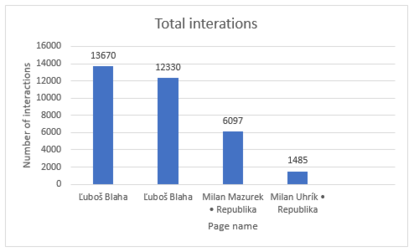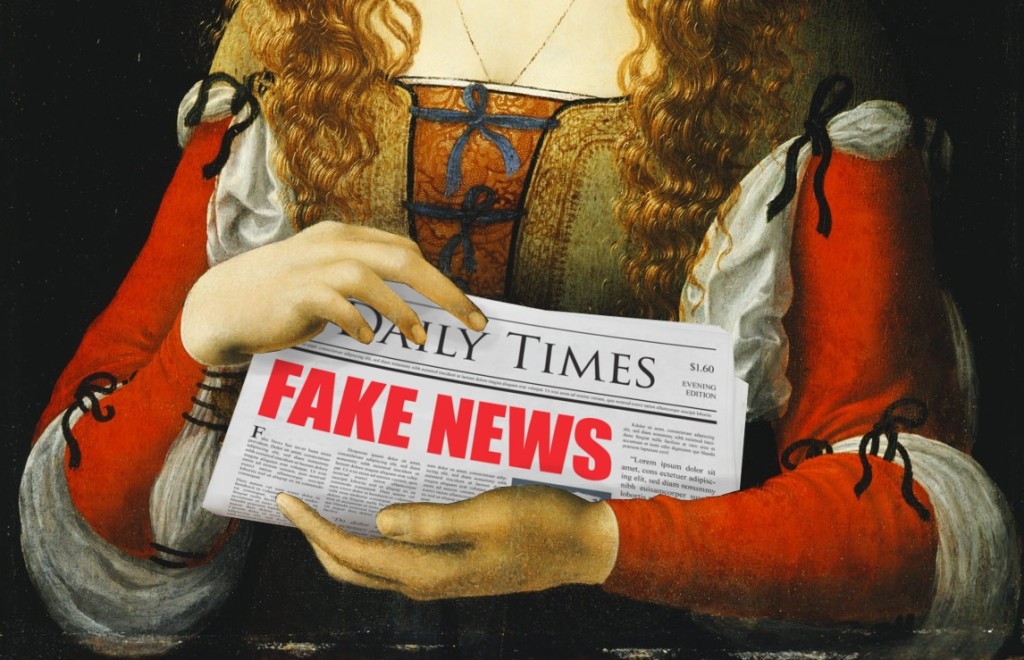As in the weeks prior, this week Infosecurity.sk also presents an overview of disinformation trends it has been on the rise in the past two weeks:
1. On August 10, the Slovak cabinet approved a series of changes to the COVID-19 measures. The pandemic is an emotionally charged topic that had led to several anti-government protests in recent weeks.
2. The disinformation media and certain politicians used the new set of rules to spread disinformation and false narratives. The narrative of vaccination or COVID “apartheid” continues to be one of the most prominent ones.
3. At the forefront of spreading false narratives there is a group of opposition politicians supported by a plethora of disinformation media. Their posts included calls for protests and several false claims, including the assertion that basic civil rights of the unvaccinated were at stake, particularly their right to vote.
4. The disinformation actors also cling to international topics. August 9 marked the first anniversary of the rigged presidential elections in Belarus, which was followed by a wave of protests and demands for free, democratic and fair elections to which Lukashenko responded with a brutal crackdown.
5. Lukashenko claimed that the protests demanding transparent elections were nothing more than a Western-backed coup attempt. In Slovakia, Luskahenko’s narratives were echoed by local disinformation websites and by certain politicians who have long tended to support authoritarian regimes. Even a year later these disinformation actors continue to spread a skewed image of the events.
6. It can be observed that the disinformation actors continuously utilise the same old tropes when informing about the protests, namely playing the victim card and creating the impression that there is a kind of anti-Russian sentiment in the liberal and democratic West, referred to as Russophobia.
New Changes to COVID Automat: Path to Apartheid According to Disinformation Actors
On August 10, the Slovak cabinet approved a series of changes to the COVID automat – an emotionally charged topic that had led to several anti-government protests in recent weeks. The new changes are due to come into force on August 16. They come after the last set of restrictions regarding the border regime was suspended by the Slovak Constitutional Court, giving the people who only got the first dose of vaccine the same rights as those who are unvaccinated. Before, partly vaccinated ones had a different status.
One of the changes is that the pandemic restrictions will no longer apply state-wide but will instead apply to individual counties based on their risk of infection. The indicator of a community’s risk level is also based on the number of vaccinated individuals over the age of 50, meaning that more vaccinated municipalities receive fewer restrictions. In this way, the COVID automat aims to encourage citizens to vaccinate to improve the situation in their municipalities.
Another major change is that organisers of mass gatherings and owners of facilities will be able to allow only fully vaccinated individuals to enter (they have to provide a proof of vaccination), or require a negative test result or proof of recovery from COVID. Also, they might decide to allow all individuals to enter without requiring proof of vaccination or a negative test. The policies for each category differ in the limits on the number of people who may enter the premises of the facilities or attend events.
The Union of Towns in Slovakia and some municipal representatives have welcomed the fact that the new COVID automat follows regional principles, as the nation-wide restrictions have led to paradoxical cases where municipalities with good epidemiological situation have had to impose strict restrictions because of the worse situation in other municipalities. The new amendments are therefore aimed at avoiding such situations while minimising economic impairment.
However, as in the past, disinformation media and certain politicians used the new set of rules to spread disinformation and false narratives. One of the prominent ones being that of vaccination or COVID “apartheid” – where the disinformation actors interpret the new set of rules as a way to divide the population into “less desirable” unvaccinated and the privileged group of the vaccinated.
At the forefront of spreading false narratives there is a group of opposition politicians supported by a plethora of disinformation media. While both opposition and coalition politicians are using the pandemic to gain political support, it is mostly part of the group of opposition that is attracting the most attention of social media users.
Regarding the aforementioned narrative of COVID “apartheid”, the data obtained using the CrowdTangle analytics tool shows that there have been 44 posts posted on Facebook just in the last 14 days containing this narrative. The Top 4 most successful ones in terms of total interactions (interactions, shares and comments) came from MPs Milan Mazurek and Milan Uhrík (ex-members of the far-right People’s Party Our Slovakia) and Ľuboš Blaha of social-democratic SMER-SD.

The data was obtained by searching for the keyword “apartheid”.
The posts included calls for protests and several false claims, including the assertion that basic civil rights of the unvaccinated were at stake, particularly their right to vote.
Milan Mazurek´s and Milan Uhrík´s “anti-apartheid” posts included a counter-proposal to “return to the system before March 2020” and establish so-called “free zones” where no testing or vaccination would be required. Given the expected severity of the third wave of Covid and the reach of these actors, such blunt assertions undermining the measures can have immense health and economic consequences for the population.
Disinformation Media Are Marking First Anniversary of Protests in Belarus in Truly Fitting Way – by Spreading More Disinformation
The disinformation actors also reflected on international issues. August 9 marked the first anniversary of the rigged presidential elections in Belarus, which was followed by a wave of protests and demands for free, democratic, and fair elections. The Lukashenko regime responded with a brutal crackdown on protesters and decimated the civil society, justifying its actions by claiming that the protests demanding transparent elections were nothing more than a Western-backed coup attempt.
In Slovakia, Lukashenko’s narratives were echoed by local disinformation websites and by certain politicians who have long tended to support authoritarian regimes. Even a year later these disinformation actors continue to spread a skewed image of the events. The disinformation website Zem a Vek, published an article in which it designates people opposed to the Lukashenko regime as “liberals, Russophobes and Belarussophobes”.
The article then goes on to quote the recent statement by the Belarusian KGB chief Ivan Tertel’s, in which he accuses the United States of being the main instigator of the protests, alongside the so-called Anti-Belarusian “regimes” in Kiev and Vilnius, as well as some others such as “the Czech Republic, whose current leadership has adopted an open, aggressive, transatlantic, anti-Russian and anti-Belarusian course” and has become a “loyal dog” of the U.S.
Other pro-Russian disinformation websites such as Slobodný vysielač and Extra Plus have offered their articles detailing the events albeit narratively very similar to Zem a Vek.
In general, it can be observed that the same old tropes are used repeatedly in disinformation articles, namely playing the victim card. The position of the victim has proven advantageous in today’s political and public discourse to gain sympathy and support.
Another such trope is the creation of the impression that there is a kind of anti-Russian or anti-Belarussian sentiment in the liberal and democratic West, simplistically referred to as Russophobia. This narrative is often used by the pro-Russian media and picked up by local disinformation actors.
Written by:
Matej Spišák – a Research Fellow at STRATPOL – Strategic Policy Institute in Bratislava and Editor-in-Chief at Infosecurity.sk
Denis Takács – an Analyst at STRATPOL – Strategic Policy Institute in Bratislava
The article was originally published at: https://www.freiheit.org/central-europe-and-baltic-states/infosecuritysk-bi-weekly-report-emerging-disinformation-trends-8
Project Infosecurity.sk organized by STRATPOL – Strategic Policy Institute and Slovak Security Policy Institute, which is supported by the Prague office of the Friedrich Naumann Foundation for Freedom, continuously monitors the activities of both Slovak and foreign disinformation actors, but focuses mainly on the former. The project activities are built upon daily monitoring of emerging disinformation, hoaxes, and conspiracy theories in the online information space. This approach allows the analysts to identify disinformation posts and narratives that resonated with the public the most, as well as to find out where they originated, and how they spread and evolved on social media. The report takes the form of a bi-weekly summary of arising trends in the spread of malicious information content online. Based on that, Infosecurity.sk can warn the public about emerging and current trends in the field of disinformation, manipulation, and propaganda.
Continue exploring:
Pandemic Accelerated Digitalization of Local Democracy in Ukraine



